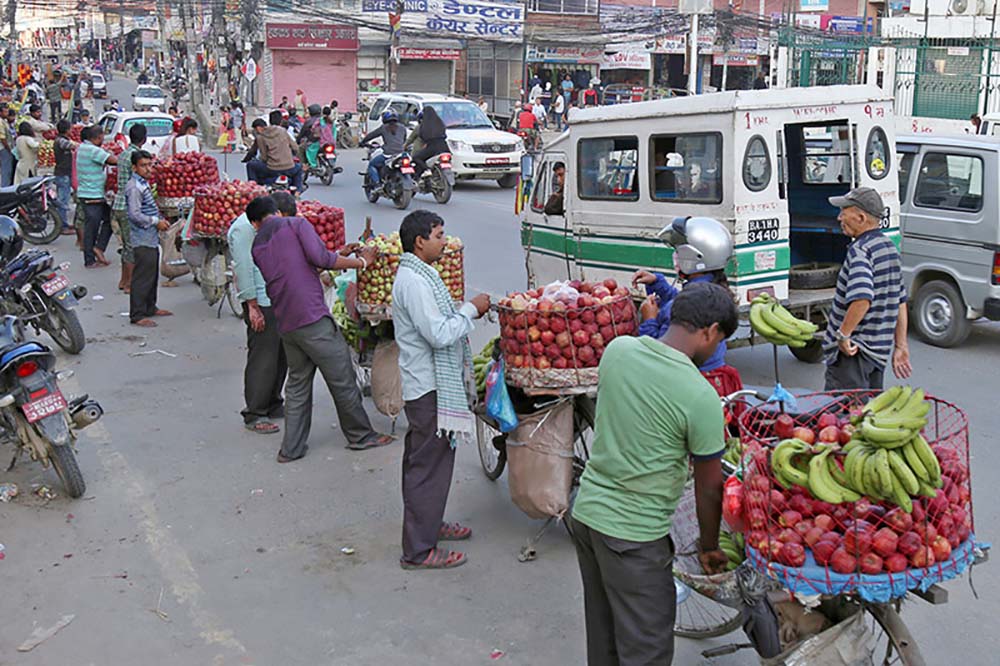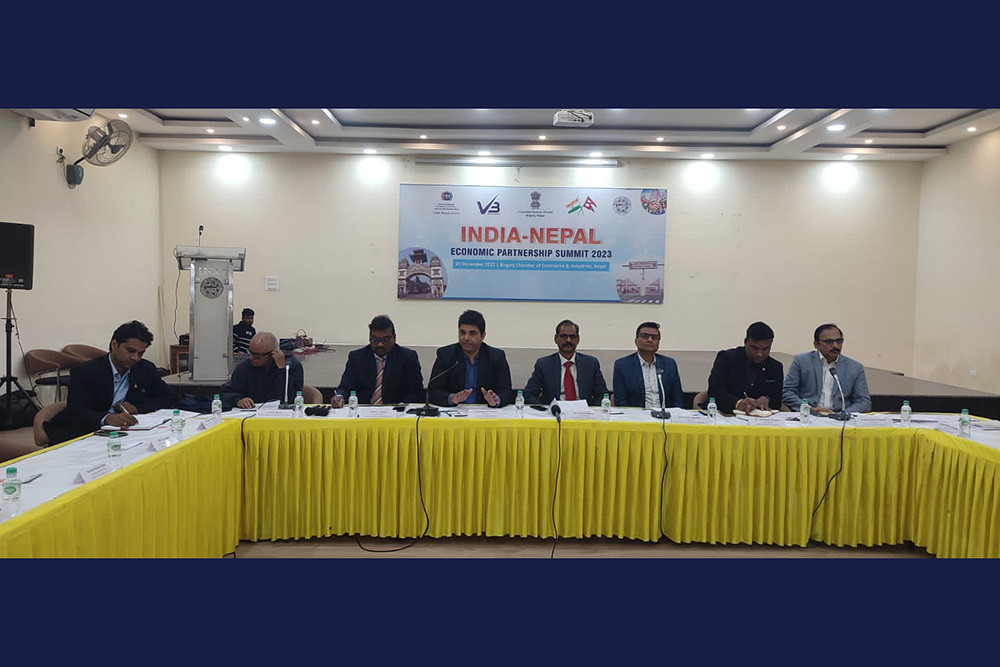
KATHMANDU: The Kathmandu Metropolitan City (KMC) has made it clear that it does not have policy allowing the operation of any sort of business on footpath.
The KMC policy states that no goods and commodities including foodstuff can be sold and distributed from the roadside or on the footpath at any time.
KMC Police Chief Dhanapati Sapkota said that managing the footpath is on the priority among the responsibilities given by the KMC to the Metropolitan Police.
"The pavement is for the pedestrians. It is not made for running shops and stalls. Those operating shops and stalls without obeying this rule have been hauled and their goods confiscated," the KMC Police Chief said, reminding that newly-elected Mayor Balendra Shah had, during the time of filing his candidacy, announced to manage the businesses run on footpath. Shah was elected as KMC mayor through the local level elections held a month ago.
It is also stated in the Policy and Programmes for the next fiscal year passed by the KMC municipal assembly on June 22 that the businesses operating from the footpath will be controlled.
"We have moved forward the works as per the decision of the KMC Executive. It is not a matter to protest. Why protest when we have carried our job in line with the Municipal Executive's decision? It is also our responsibility to transform the business operating from the footpath so that they could come under the ambit of tax," Sapkota elaborated.
Stating that it is natural for criticisms while carrying out works, he said the KMC has only been controlling the encroachment on the road and pavements. He said, the side running businesses on the pavement or roads will be affected when the authorities try to control the encroachment and these sides tend to make various comments and criticisms. The KMC Police Chief said he takes such comments and criticisms as obvious.
He insisted that the work on managing the footpath has been done in the interest of the general public.
Sapkota said, "Running a business using street is not positive in any pretext. The policy of the KMC mentioned that no one is allowed to run business in the street round the clock, if it has been taking place somewhere, it is happening clandestinely. The KMC will take initiative to bring all of them under the ambit of law in the coming days."
He opined that city police have focused their attention to bring vendors under control in the morning and evening when the movement of people is high. The KMC was criticised after a video of city police confiscating goods from a couple selling maize on the street and misbehaving with the couple was uploaded on social media.
The KMC has been working to control street encroachment by deploying four teams every day. Mostly the streets of Sundhara, New Road, Baneshwor, Koteshwor, Gaushala, Chabahil, New Bus Park, Balaju, Kalanki and Kalimati are being encroached.
The KMC was compelled to take such action after its frequent requests not to run any business encroaching street were ignored, Sapkota argued. According to the KMC, goods confiscated from the vendors are put for the auction process.
Similarly, goods that become stale easily as well as fruits, vegetables and flammable substances are returned to the concerned businessman after taking fine from them.
In the current fiscal year, the local government has proceeded with the sale of confiscated goods at an auction and last fiscal year, goods including iron items, hoarding boards, bicycles and carts worth Rs 5.2 million were sold at an auction, according to Chief Sapkota.
Vendors voice for alternative to footpath
On one hand, the Metropolis is seeking to implement its policy, while the stories of street vendors are different. Manamaya Poudyal, 53, of Ramechhap district has been selling garments on the footpath of Sundhara for the past decade. She said, the situation is different now and they remain watchful to the potential arrivals of metropolitan police to intervene in the business.
It has already been 15 years since the Poudyal family left the village. Now, Poudyal’s children are grown and they are used to the Valley life. They are reluctant to go back to the village. On the other hand, she finds it challenging to help her children settle in the Valley. The Metropolis should come up with alternatives to street vending before intervening in the business, she opined.
Ramjanam Mishra has a similar story to share with. He has been selling fruits at the entrance of Dallu Bridge for the past 17 years. He has the experience of getting his goods seized by the metropolitan police many times. Each time, he is compelled to pay fine to get his belongings back. He is feeding his six-member family from the street vending. He also insists that the local government should provide them alternatives to earning livelihood before it has the policy of vacating the street.
However, the Metropolis says it presently finds no situation to provide a space or fix a location for footbath business. As it says, it has no way of controlling it at the moment.
(With inputs from RSS)
READ ALSO:
Published Date: July 7, 2022, 12:00 am
Post Comment
E-Magazine

Click Here To Read Full Issue
RELATED B360 National




